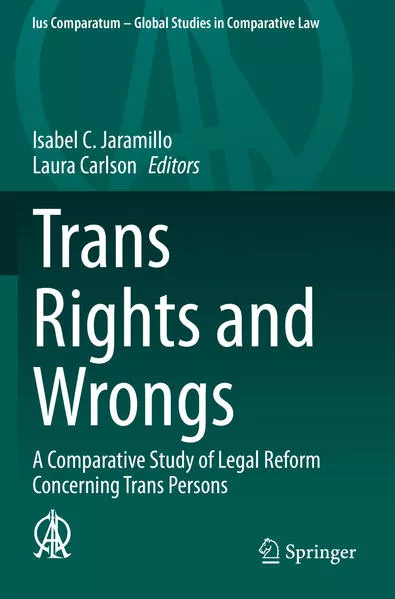
- Publikationen ca: 1
- Gefolgt von 1 Nutzern
- Fragen & Antworten
Jaramillo, Isabel C.
Isabel C. Jaramillo is a full professor of Law at Universidad de los Andes, Bogotá. She has played a leading role in the consolidation of feminist legal thinking in Latin America, where her contributions to the debate about feminist legal reform and feminist legal education are widely acknowledged. Her latest works in English include: “Latin American feminist legal theory: taking multiple subordinations seriously” in Rachel Sieder, Karina Ansolabehere and Tatiana Alfonso, Routledge Handbook on Latin American Law and Society (2019); and “Feminism in transition” in Janet Halley, Rachel Rebouche, Prabah Kotiswaran and Hila Shamir, Handbook of Governance Feminism: Notes from the Field, Minneapolis, University of Minnesota Press (2019).
Laura Carlson is a professor in private Law specializing in labor and discrimination law as well as, Academic Director of Internationalization and Head of Labor Law at Stockholm University’s Department of Law. She has written several books and articles on discrimination law from comparative perspectives, the books include, Searching for Equality, Comparative Discrimination Law: Historical and Theoretical Frameworks and the most recent, Workers, Collectivism and the Law: Grappling with Democracy. She is editor-in-chief of the Brill Research Perspectives in Comparative Discrimination Law, Board Member in the European Women Lawyers Association, Board Member of the Berkeley Center on Comparative Equality & AntiDiscrimination Law and Co-Chair of the Center’s Equality and Covid-19 working group.

Trans Rights and Wrongs
This book maps various national legal responses to gender mobility, including sex and name registration, access to gender modification interventions, and anti-discrimination protection (or lack thereof) and regulations. The importance of the underlying legislation and history is underlined in order to understand the law’s functions concerning discrimination, exclusion, and violence, as well as the problematic nature of introducing biology into the regulation of human relations, and using it to justify pain and suffering.